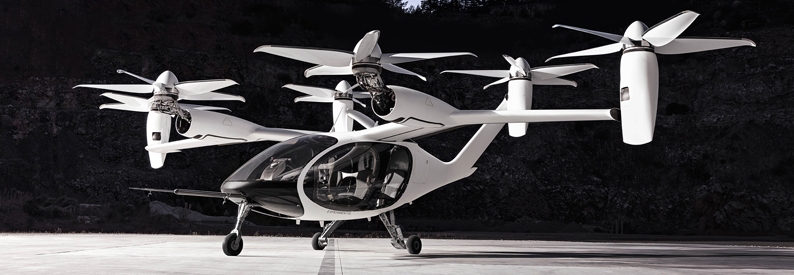Vertical and Joby Lead eVTOL Industry as Rivals Collapse

With the collapse of Volocopter and Lilium over the past year, the electric vertical takeoff and landing (eVTOL) race is narrowing to two major players—UK-based Vertical Aerospace and US-based Joby Aviation. Both have made strong progress in 2025 through critical flight tests, strategic partnerships, and robust fundraising efforts, setting them apart in a highly competitive and capital-intensive market.
Vertical Aerospace kicked off the year with a $90 million funding round, bolstering its VX4 eVTOL program under the company’s “Flightpath 2030” strategy. By February, Vertical had completed more than 30 thrustborne test flights of its full-scale VX4 prototype at Cotswold Airport, including maneuvers like hover, yaw, and spot-turns. In May, the VX4 achieved a major European milestone with the first piloted wingborne flight of a winged eVTOL aircraft in open airspace. This followed UK Civil Aviation Authority approval and showed the VX4 flying and landing like a conventional aircraft.
Vertical has been expanding its team as well, bringing in former Volocopter Chief Test Pilot Paul Stone, new board members including former Eurocontrol Director General Eamonn Brennan, and strengthening its long-term alliance with Honeywell in a deal worth up to $1 billion. That partnership focuses on certifying critical flight systems like Honeywell’s Anthem avionics suite and compact fly-by-wire controls. In its most significant 2025 update, Vertical also announced it is building a hybrid-electric version of the VX4 with a 1,000-mile range and 1,100-kilogram payload. The variant is expected to begin test flights in 2026 and is aimed at military, logistics, and commercial sectors.
Meanwhile, Joby Aviation continues to lead the certification race in the US. Already in phase four of the FAA’s five-stage process, Joby expects to begin Type Inspection Authorization testing by late 2025, which will allow FAA pilots to evaluate its aircraft for commercial use. In April, Joby completed its first piloted transition flight—from vertical to forward cruise and back—and followed it up with multiple flights involving different pilots. Joby’s test fleet has grown to six aircraft, and two flew simultaneously for the first time in May.
Joby has also expanded its global footprint and funding. In 2024, it secured over $1 billion in new investments and recently closed $250 million of a $500 million commitment from Toyota, bringing its cash position to $813 million as of March 31, 2025. The company plans to deliver an aircraft to Dubai mid-year for testing ahead of commercial launches. It also struck a new partnership with Virgin Atlantic, enabling customers to book Joby flights via Virgin’s platforms in both the US and UK.
Both companies appear financially stable and technically advanced as they move toward certification and eventual passenger service. Vertical is focused on European airspace and hybrid-electric potential, while Joby targets the US and Middle Eastern markets with a fully electric model. As the industry contracts, Vertical and Joby are setting the pace for the next era of aviation.
Related News : https://airguide.info/?s=Joby+Aviation
